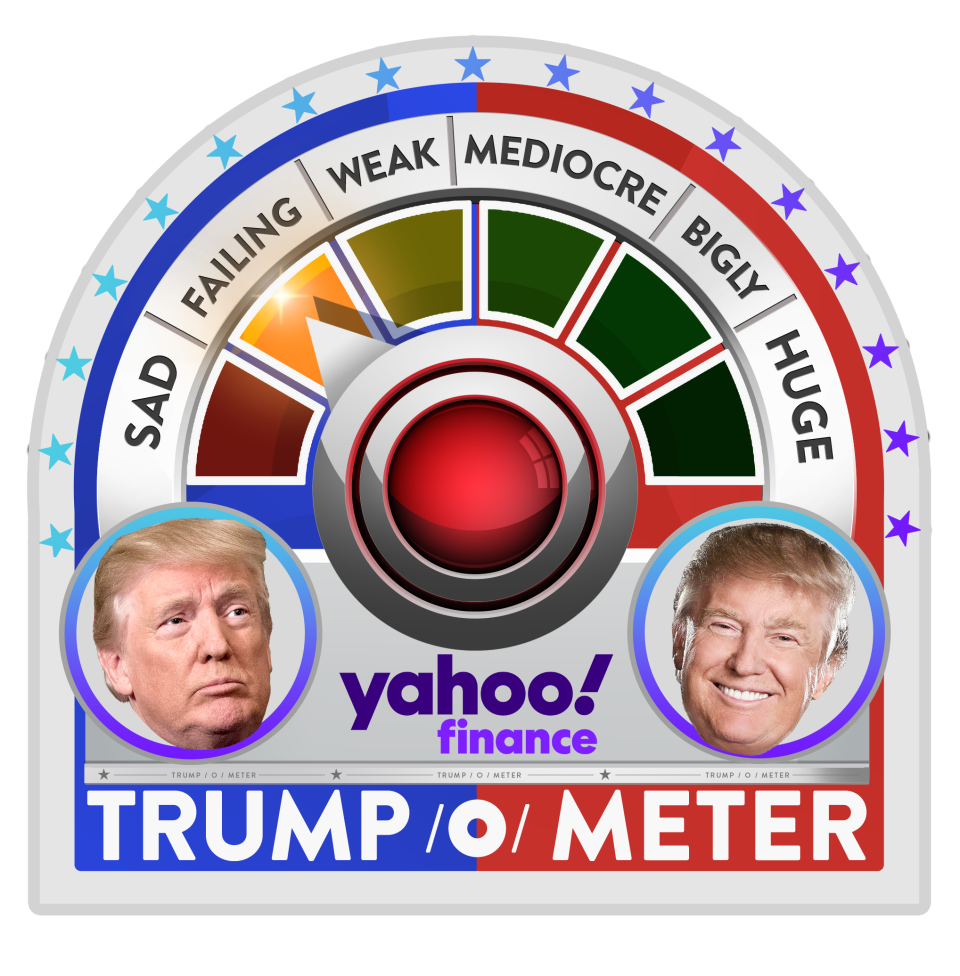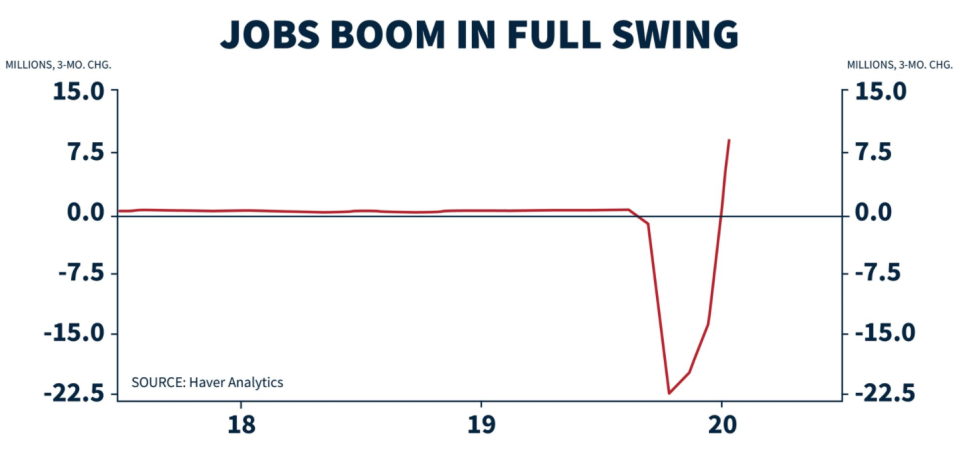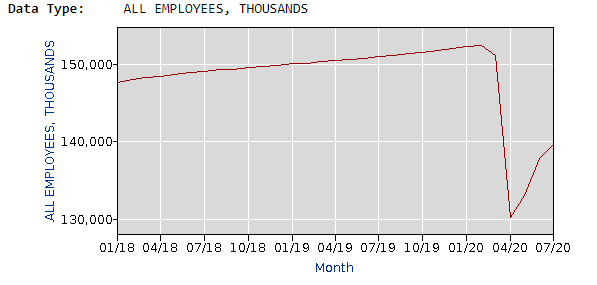This week in Trumponomics: We suck less
In 2009, when everybody hated the banks, JPMorgan Chase CEO Jamie Dimon joked about the secret to his own bank’s success: “We suck less.”
President Trump is now taking a similar approach to touting his handling of the coronavirus economy. In briefings and tweets this week, Trump showed how the U.S. economy has shrunk by less than it has in some other countries, while the U.S. stock market has performed better. He also published a series of V-shaped charts that seem to show a sharp recovery under way in the United States, as if things are back to normal.
You know what’s coming, right? Trump’s charts were selective, distorted and unrepresentative of what’s happening in the real economy, where widespread shutdowns continue to hammer workers and businesses. One Trump chart, labeled “shallowest contraction,” shows the change in U.S. GDP since last year, compared with a bunch of other countries, including Austria, Belgium, France, Germany and Italy. The U.S. shrinkage is the smallest among the group, of course. Conspicuously missing, however, are Japan, China, South Korea and Australia, which have done a far better job controlling the coronavirus and are doing much better economically.
Another chart, labeled “Jobs Boom in Full Swing,” shows a chart with a V-shaped line that plunges early in the year but is now higher than it was at any point since 2018. That makes it look like there are more jobs now than there were six months ago. But the fine print reveals this chart tracks the three-month change in the number of jobs, not the actual number of jobs, which is why it looks way better than reality. Employers have, in fact, added a record number of jobs during the last three-month period. But that’s only because the job losses in March and April were so severe. On the whole, the unemployment rate is still three times higher than it was in February, and higher than the worst point of the 2007–2009 Great Recession.
When you have to fudge the numbers this bad to defend your record, you’re losing. This week’s Trump-o-meter reads FAILING, the second-lowest rating.

Trump’s bogus charts don’t deserve to be republished, but it’s worth debunking at least one of them. Take a look at the “jobs boom” Trump wants you to believe exists. Trump’s tricky chart measuring the three-month change in jobs makes it look like we’re better off than before. That’s because it measures rate of change rather than absolute levels, and change has been dramatic, in both directions, because of the abrupt nature of the coronavirus shutdowns.

But notice that three-month loss of jobs hit nearly 22 million at one point, while gains have barely crested seven million. The real state of the job market—which is terrible—is apparent in this chart, which simply shows the total number of people with jobs in the United States. Not a three-month average or a dispersion index or a double-secret derivate of total employment. Just plain old total employment:

The job numbers are improving, but slowly, and it could be months or years before we reach pre-coronavirus employment levels. Meanwhile, here’s what really happened in the economy this week:
Weekly unemployment claims dropped below 1 million for the first time since March. But they were still more than four times higher than before the coronavirus shutdowns. The labor market isn’t remotely back to normal.
Retail sales improved at a pace that suggests a slow recovery grinds ahead. That aligns with consumer confidence, which improved slightly this week but remains deeply depressed overall.
Congress, however, is at an impasse over further stimulus aid, with no resolution likely until September at this point. A lack of further unemployment aid and stimulus checks will probably hurt consumer spending during the next several weeks. Trump tried to direct some aid through executive actions, but it will have limited effect. Trump can’t appropriate money without Congress, even if there’s a chart showing he can.
Rick Newman is the author of four books, including “Rebounders: How Winners Pivot from Setback to Success.” Follow him on Twitter: @rickjnewman. Confidential tip line: rickjnewman@yahoo.com. Encrypted communication available. Click here to get Rick’s stories by email.
Read more:
Get the latest financial and business news from Yahoo Finance
Follow Yahoo Finance on Twitter, Facebook, Instagram, Flipboard, SmartNews, LinkedIn, YouTube, and reddit.



